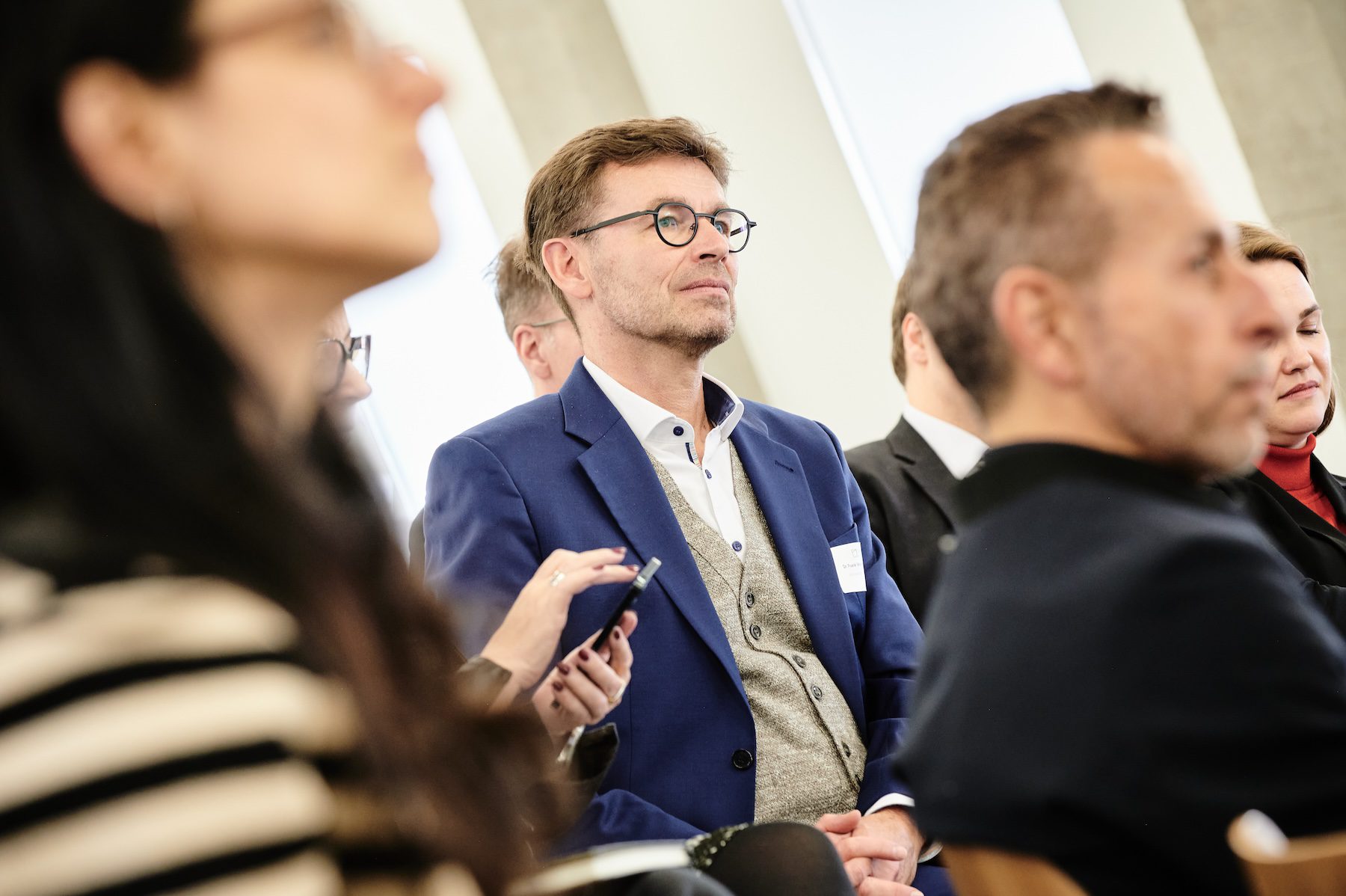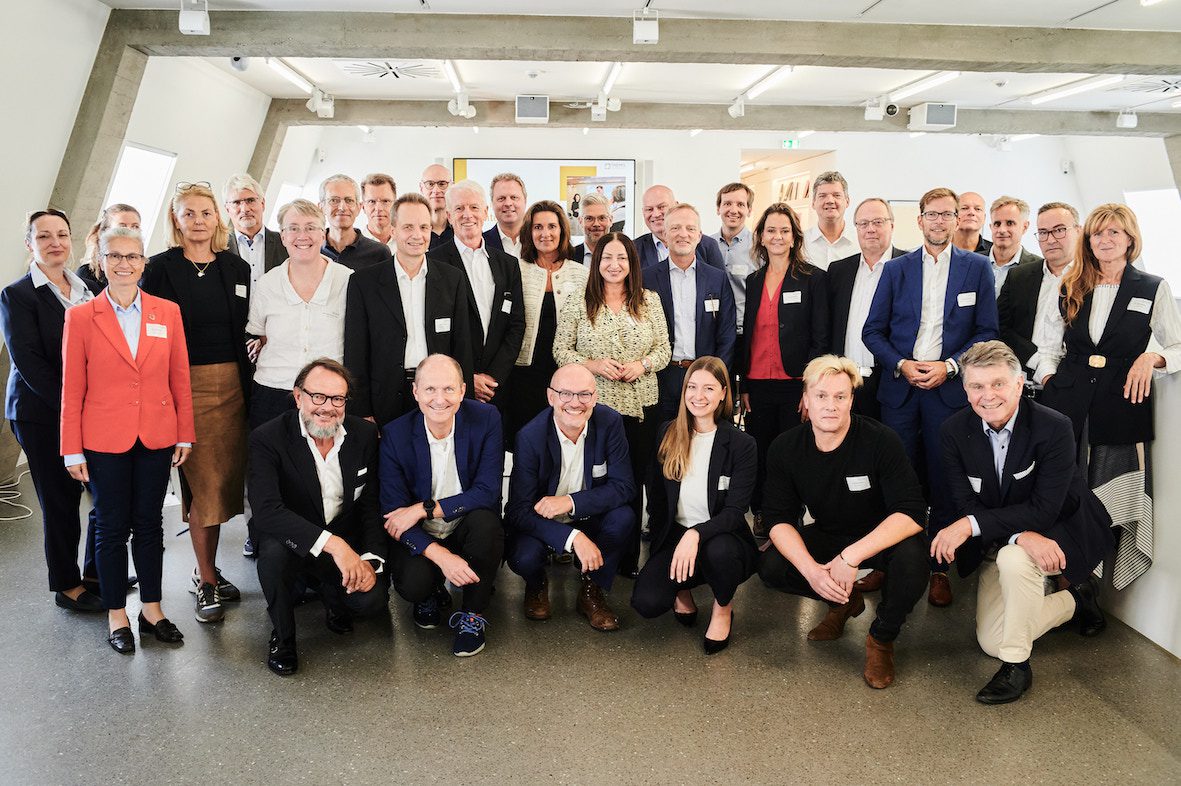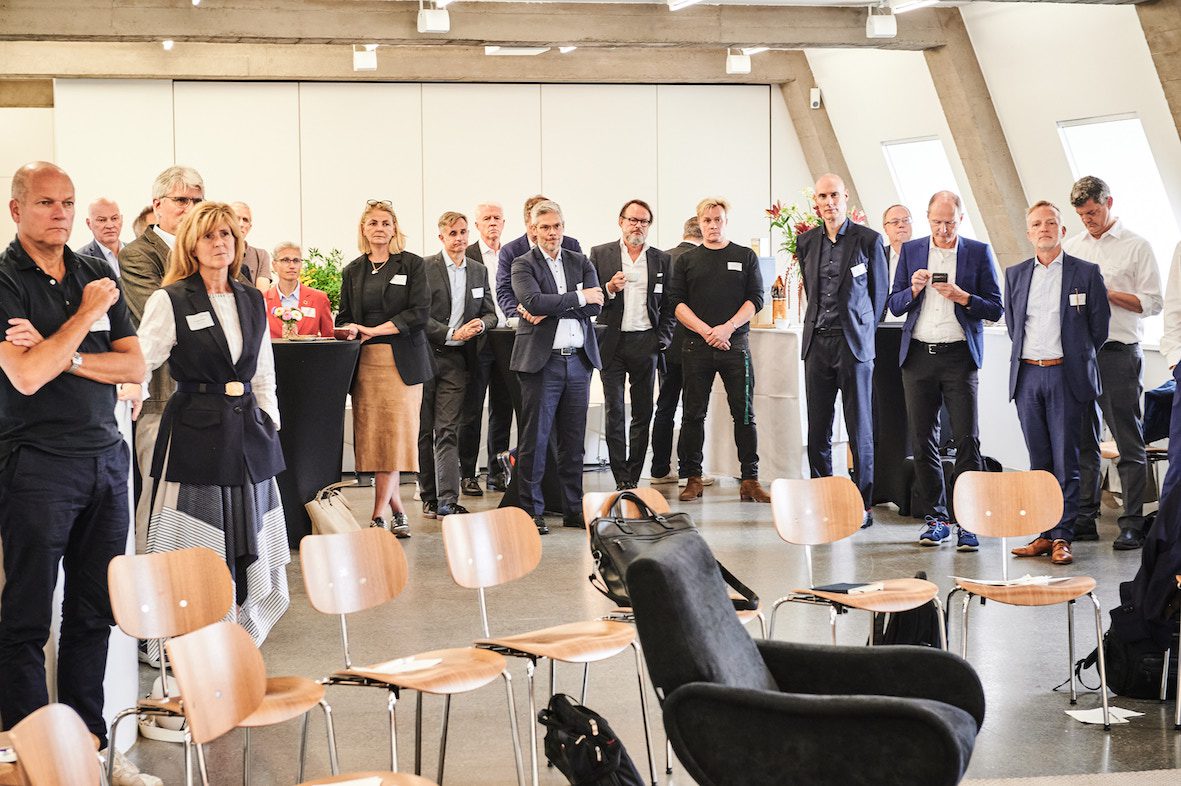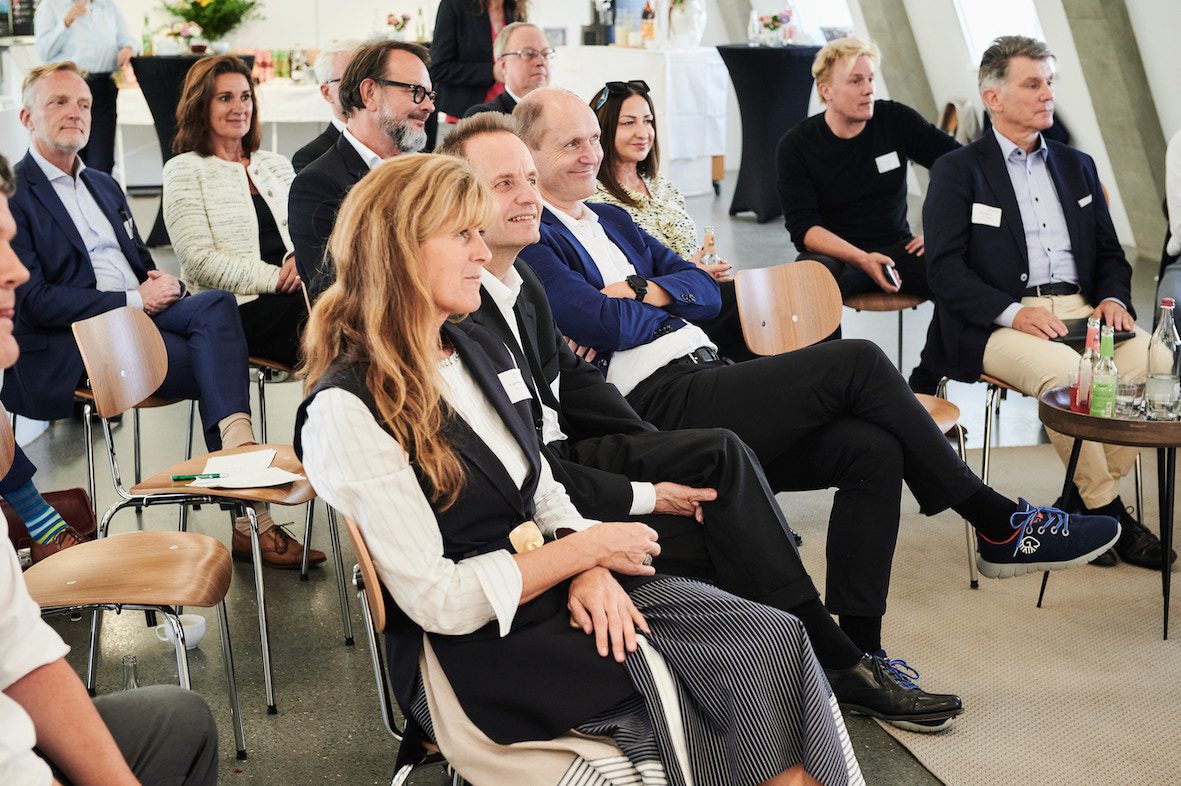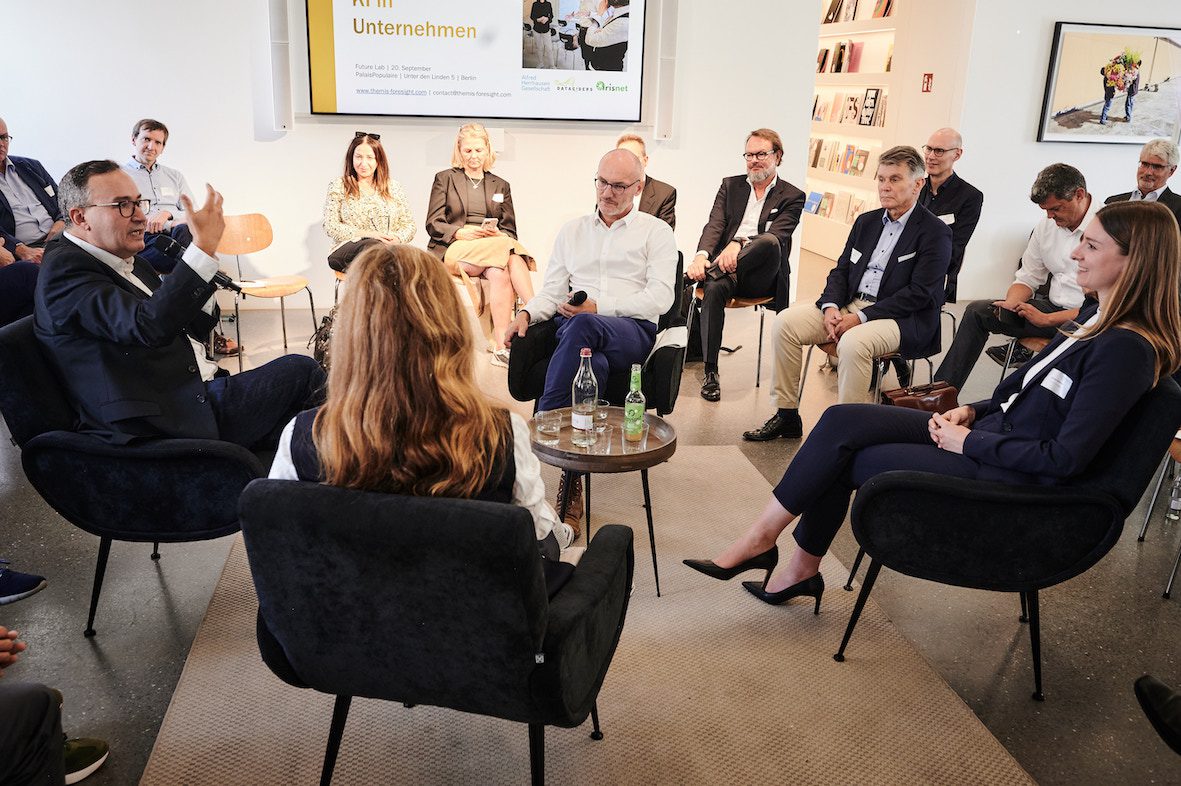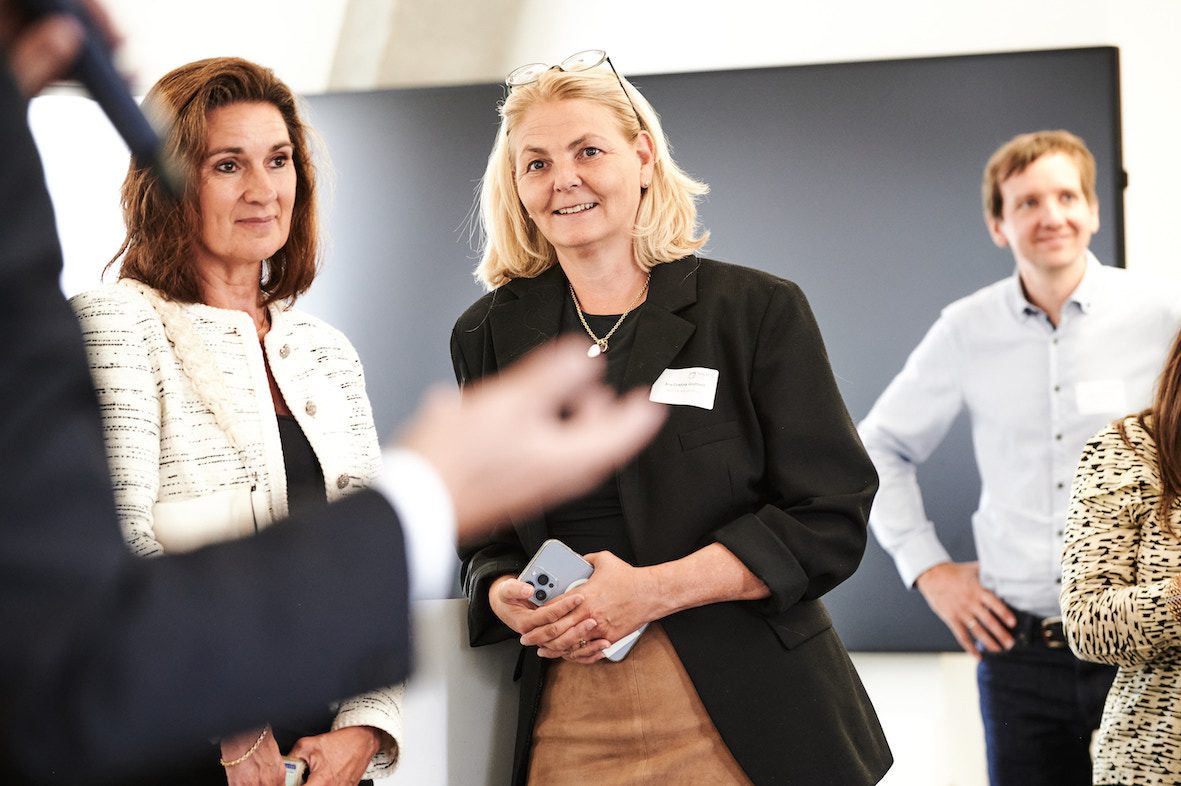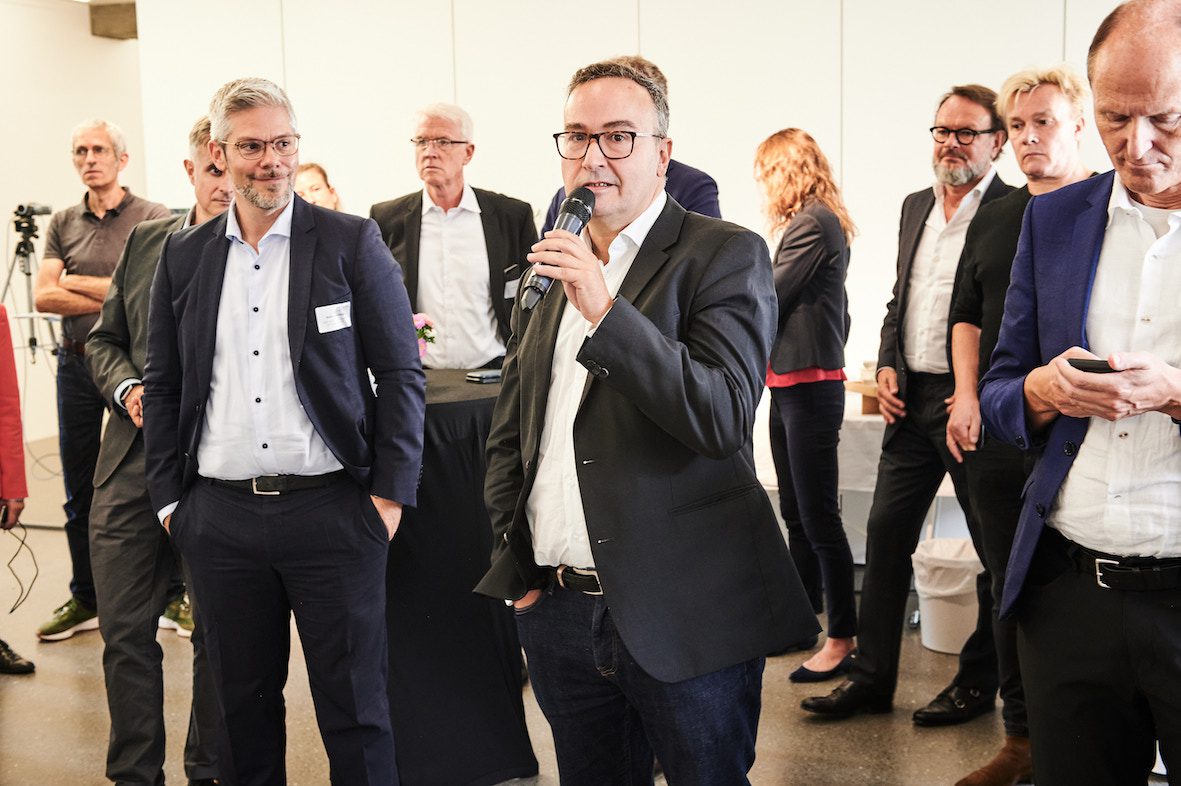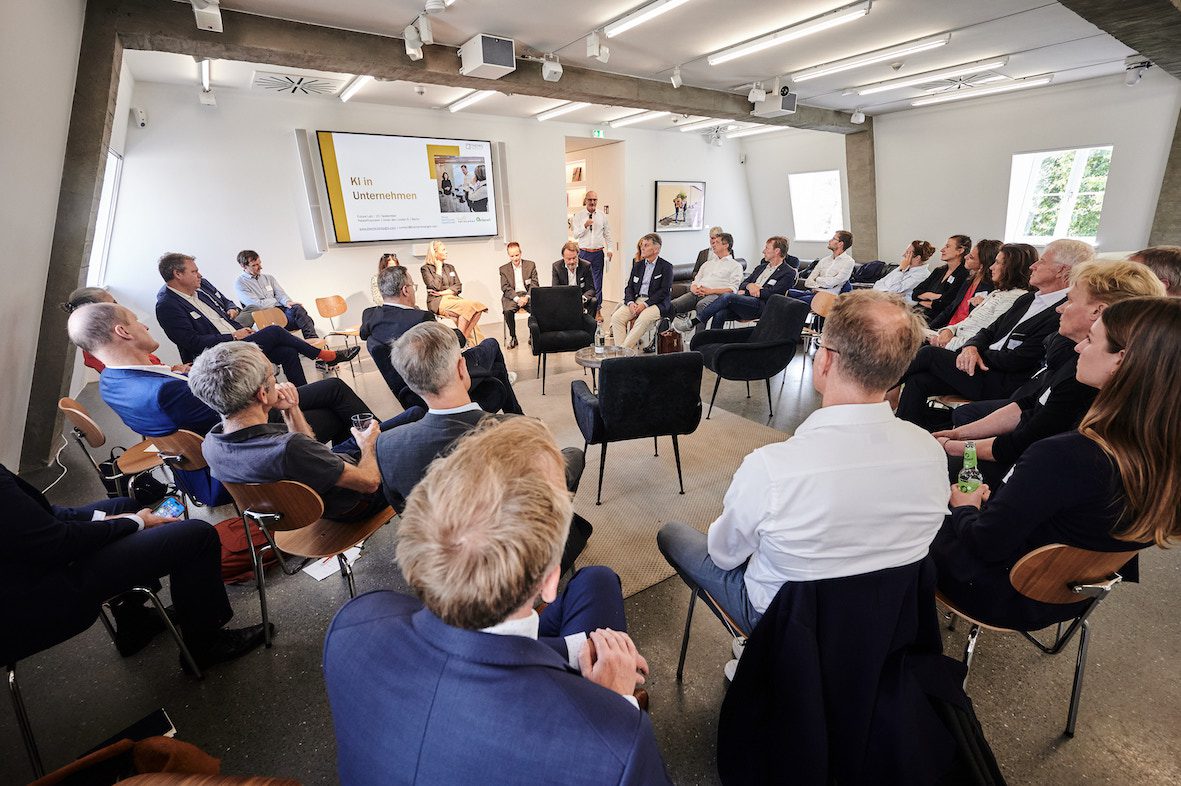In our Future Lab last week, Dr. Bettina Volkens, former Lufthansa’s Chief Human Resources Officer stated that HR must be given a higher priority at Executive Board level. One thing is clear: the labor market is facing major changes and the shortage of skilled workers will be with us for some time to come. There will be a shortage of several million workers in the next decade. It is therefore clear that HR must be given greater attention in companies. However, current measures to combat the shortage of skilled workers are only superficially effective. They ignore the real problem: the fish in the pond are getting fewer. Many companies are backing the wrong trend horses instead of freeing up existing manpower through automation and a clearer focus.
In this white paper, you will learn about the consequences of integrating AI into work processes and which aspects your HR department needs to be aware of.
False trend horses
In the next 12 years, 7 million people or 15% will leave the German labor market. If the demand for labor did not change by then, in 2035 companies would be competing against each other for employees in a labor market that is permanently understaffed by 10%. Things will certainly change, but the question is how?
Over the past few months, we have repeatedly looked at what traditional recruitment consultancies recommend to their clients:
- “Recruiting must adapt to the labor shortage.”
- “The home office is here to stay.”
- “You can differentiate yourself from the competition with additional services.”
- “Employer branding will play a decisive role in retaining and attracting employees.”
- “New Work”
In our Future Labs, we talk about the wrong trend horses. Spend a day exchanging ideas with executives from other sectors on a focus topic.
This current “wisdom” is not wrong, but it is blind to the real iceberg. Working from home may be here to stay in some areas of activity, but even in the times of Covid lockdowns, it was not a solution for working in production. Machines often do not load and repair themselves. Employer branding is certainly a helpful tool to make your own company shine in the job market. But you won’t be the only ones trying to attract skilled workers by this means. With up to 7 million workers missing, the pond we are fishing in is empty. You may be casting out tasty bait, but where there are no fish, there are no bites.
Even the much-vaunted “New Work” is not a recipe that promises success to companies that are in international competition. For two reasons:
1) When New Work was conceived over 40 years ago, the problem it was trying to solve was quite different. The first Centers for New Work in Detroit in the 1980s attempted to solve the problem of mass unemployment caused by mass redundancies in the car industry, which had been hit by the oil crisis. That is the opposite of the current situation!
2) The medicine administered by Frithjof Bergmann and his fellow campaigners was an economic model of communal self-sufficiency – in a sense a further development of the ideas of the 19th century Russian anarchist Mikhail Bakunin, who fought industrialization. Such economic models can work and require suitable working models. But the shoe does not fit for industrial giants such as Siemens, Volkswagen or Bayer or the many hidden champions and SMEs in the German economy.
Calls to relax the rules on labor migration are also not wrong in themselves. But in many cases, these are also based on fiction. After all, demographic change is not a German phenomenon. The whole of Europe is ageing. China is ageing faster than Germany. Africa is the only continent that is creating new generations in the long term. You may also have read that the Tesla plant near Berlin is still 5,000 workers short. The majority of these were to come from Poland. But this calculation does not work out.
Automation of manual and manual labor
A more promising approach is the consistent automation of all repetitive activities. There has been massive progress in these areas in recent years! We only have to look at the images of packaging robots in warehouses or fly a drone through the Gigafactory Grünheide to imagine a working world of tomorrow with more robots than people. The fact that this makes a great deal of economic sense is well explained by Christoph Krachten in this article.
The hype surrounding ChatGPT in recent months also clearly demonstrates which activities that until recently were seemingly “forever” in the human domain can now be carried out by algorithms with a high degree of efficiency. The potential to free up manpower, or rather to compensate for a lack of manpower, is enormous. And it is worthwhile for companies to think in precisely this direction. Does it still make sense to assign ten FTEs to create texts or slide sets, or will you soon integrate these activities into your daily work routine in the same way as telephoning, typing or e-mails?
Our offers on AI and work
- If you are interested in exploring these topics with us and thinking about approaches that go beyond employer branding and new work, then you are welcome to come to our
Future Lab
on
September 20 in Berlin on AI in the world of work.
- Worth reading is
this white paper
in which we shed light on the increasing fusion of human and machine activities. How will robotics and artificial intelligence enhance human resources in companies? What other human skills will play a role in the future? What considerations do companies need to make with regard to their workflows when integrating AI?
- If you are already using AI or are planning to integrate an AI system, our
AI masterclass
to get all relevant employees on board.
- Whether compliance, data protection or external auditors. The use of AI in companies requires ethical guidelines. For internal and external audits: Download our AI checklist. What is missing from your AI ethics guidelines?
The use of such technologies requires:
New skills and competencies
If they take the path of consistent automation of their production and office activities, they will not be forced to look for skilled workers in an overfished labor market. Instead, they train your employees today for activities that will be the norm in 2, 5, 10 and 15 years’ time. What these activities look like can already be described today. This is because the challenges and consequences of new technologies can be seen long before they are ready for series production. In our Future Lab on Future Skills and the Future of Work last week, we discussed with executives that knowledge will become less important in the coming decades, but that the right attitude, such as curiosity or an employee’s willingness to learn, will be increasingly in demand.
In a project at the beginning of 2017, in which we also investigated the interaction between humans and artificial intelligence, we stumbled across the problem that AI is full of prejudices and that sooner or later we will be forced to develop AI that respects and complies with corporate values. We didn’t know what this activity would be called in the future and gave it the name “AI Whisperer”. But we were able to anticipate very accurately what methods people will use in this job, what iterations of technology they will use, who they will communicate with, how they will be tied to their company and what their needs will be. In this project, we designed over a dozen future job profiles in white collar and blue collar areas and were very pleased that the required skills and competencies were subsequently rolled out in two training programs for employees of the company.
Some of these findings were incorporated into our book “The Future of AI in Talent Management”. Another excellent book on this topic is “Employability Management 5.0” with a collection of excellent articles on continuous learning.
The future role of HR
If the working world of tomorrow turns out as outlined above, then the role of HR work will also change. Because then it is important to orchestrate the interaction between humans, robots and algorithms. Just recently, a COO told me about a great machine that his company had purchased. Unfortunately, it had the shortcoming that its programming language was so complicated that only very few people were able to learn it. And there are always production downtimes because the few employees who can program the machine are absent from time to time due to illness or vacation. If this machine had been human, would you have hired it?
In the future, HR departments in companies will have a much greater decision-making role when it comes to purchasing machines and algorithms. The problem with the machine mentioned above is easy to solve. Low-code applications that enable people to create programs by rearranging process pictograms, for example, and leaving the actual programming to an engine already exist today. In future, the manufacturer of this great machine will have no choice but to deliver a low-code application with its machine. HR will specify what this low-code application should look like.
The same applies to the selection of algorithms. If your company is committed to diversity, fairness and equal opportunities, then algorithms must be able to live these values. HR will be able to formulate purchasing requirements better than your IT department.
Get rid of the bullshit jobs!
But there is another way to combat the shortage of skilled workers. And that is the consistent abolition of so-called bullshit jobs. In 2018, anthropologist David Graeber wrote a book on this subject that is well worth reading, in which he investigated how many superfluous activities there are in the private sector in particular. Not only would it make a lot of sense from a business point of view to do away with useless activities and free up the pool of well-trained employees for meaningful activities. It would also do away with the immense psychological violence that drives such employees into depression and anxiety. Graeber’s book is strongly influenced by his anarchist world view and should be read with caution in good parts. His recipe for an unconditional basic income comes with more problems than solutions. But that said, take a look around your company after reading this book and consider how many employees are engaged in meaningless activities that offer no economic or social added value.
At the beginning of the year, I read that the Federal Network Agency was looking for a fax service provider to fax 3-4,000 incoming and outgoing pages per month for the next 1-5 years (!!!). I don’t know which is more perverse. That such nonsense is paid for with taxpayers’ money? Or that there are companies that torment people for years by sending and receiving thousands of faxes a month?
Isn’t it time to free human labor from bureaucratic nonsense and unleash the qualities that no machine or algorithm possesses for the innovations we so urgently need? Only humans possess: Creativity, originality, metacognition, imagination, consciousness and self-awareness, sociability, empathy and curiosity.
We look forward to stimulating discussions with you.
